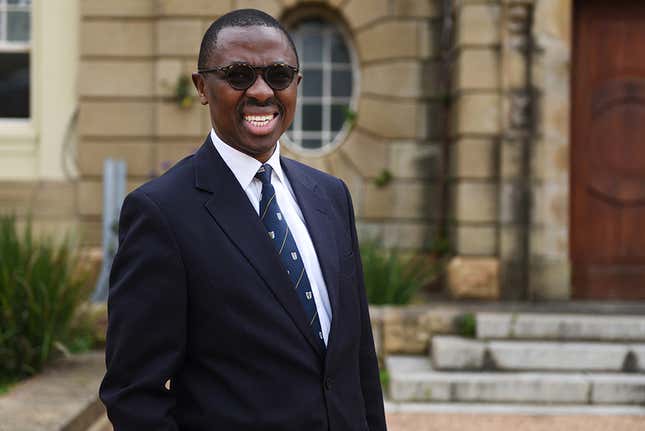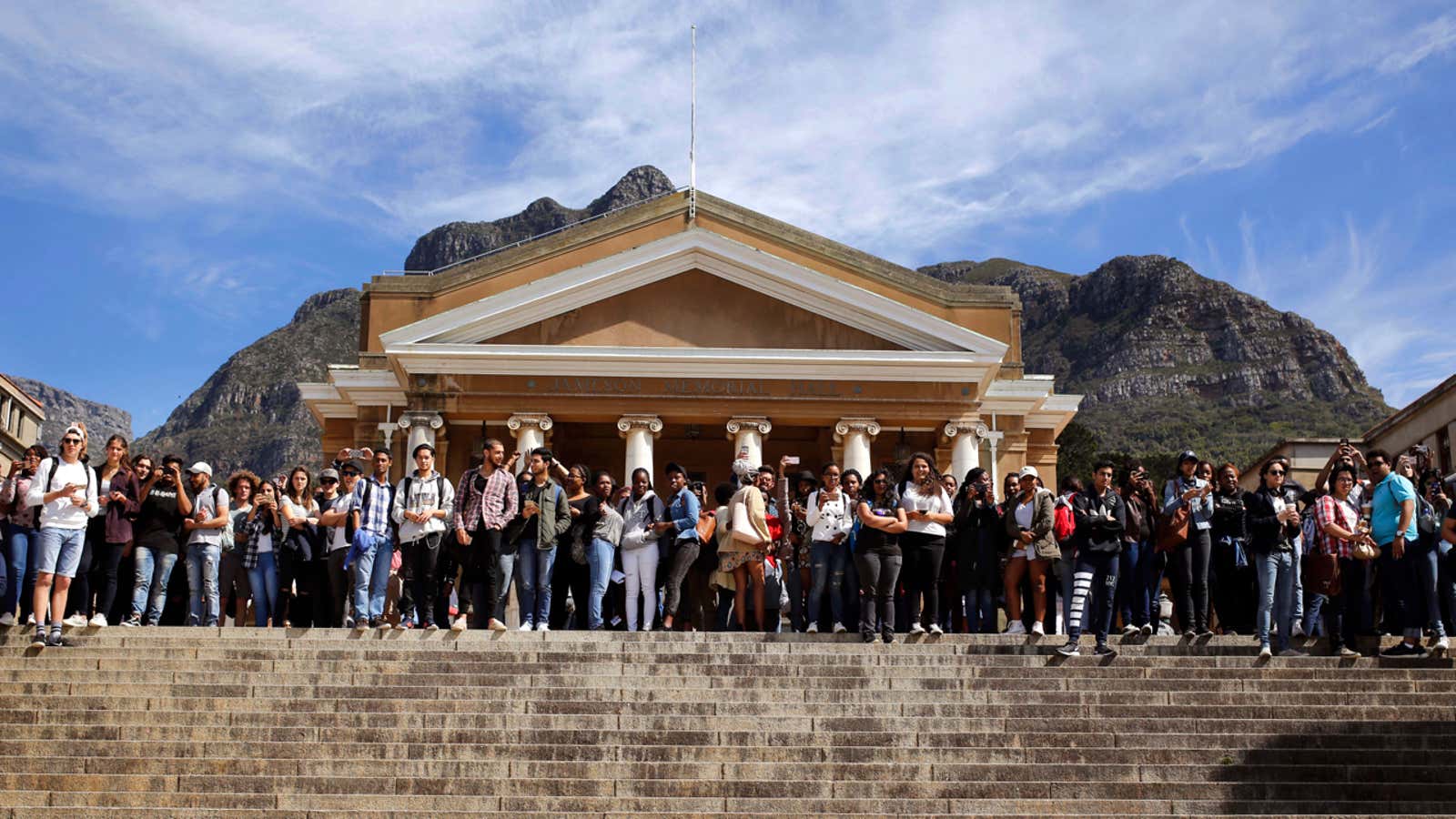So small is the fraternity of black academics in South Africa, that the death of one of its brightest made national news. That it was by suicide, forced a national reckoning. Bongani Mayosi’s success, and sudden death, forced South Africans to examine how alienating the country’s campuses still are for people of color, and the mental health burden of being the only black person at the table.
Mayosi was the first black person appointed as professor and head of University of Cape Town’s Department of Medicine and Groote Schuur Hospital, where the world’s first heart transplant took place in 1967. Mayosi, who was born in the same year, would go on to become part of the team that discovered the gene that caused heart disease in Africans.
Mayosi was a world class cardiologist who focused his research on bettering the lives of Africans. In 2014, he presented the first data set tracking rheumatic heart disease in Africa, the most common cause of heart disease among schoolchildren in Africa. On a continent only now grappling with the true toll of non-communicable diseases, Mayosi’s work was invaluable.

He helped launch the Pan-African Society of Cardiology to ensure collaboration, an organization that not only fostered collaboration among African scientists, but created a community among academics and medical researchers of color.
But as one of the country’s most prominent black academics, it was impossible for him to avoid the political storm of the Fees Must Fall movement. When universities were accused of being unsympathetic to the plight of black students, professors and department heads like Mayosi were accused of being sellouts. Mayosi’s encounter with angry students in 2015 was blamed as sparking his battle with depression. His mental health is believed to have led to his suicide on July 27.
“We asked if Mr Mayosi has a history of depression and they said he didn’t until 2016. That day he was called a coconut,” said UCT’s Vice Chancellor Mamokgethi Phakeng, herself the only black woman in such a senior position in South Africa. “That day he was called a sellout. He just couldn’t deal with. It affected him. That’s not to say that that’s the only thing that pushed him over the edge. But that’s one of the things that contributed.”
Students, however, remember Mayosi as being supportive of their cause, and blaming his workplace for contributing to his depression. While South Africa’s formerly white-only universities have allowed black people in for over two decades, it has been too little time, with too little effort, to increase the number of black professors. Many of these universities only have a handful of black academics on their faculties.
“He was a progressive black dean in a white, anti-black, anti-poor institution that posed various obstacles; that may have impeded on the Prof actualizing his aspirations and convictions,” wrote Naledi Mbaba, UCT’s law student council president and a fallist.
No more details have been given behind the reasons for Mayosi’s death, except that he struggled with depression. Mayosi’s memorial service, held on Aug. 4, was a government level affair, televised on local news channels. So great was the loss to South Africa’s health fraternity, that the health minister spoke at his funeral. The public loss, however, seemed to run deepest in the small circle of black academics in South Africa.
In a country where relatively few black students graduate from university, Mayosi’s work is celebrated for its extraordinary scientific and social achievement. Yet, he worked and studied within a system that didn’t adequately grapple with the mental health burden of working, living and learning in spaces that are still so alienating for people of color, even if they are the hallowed halls of academia.
